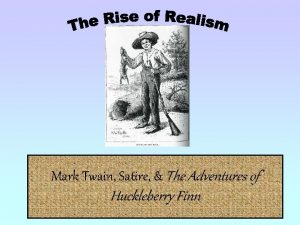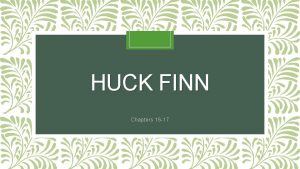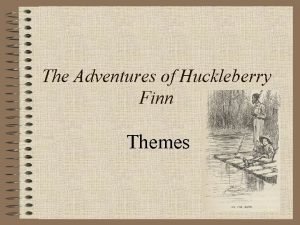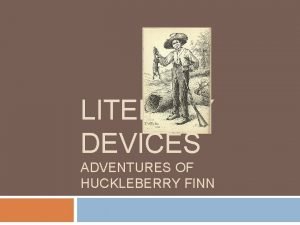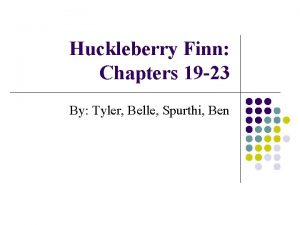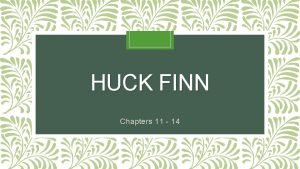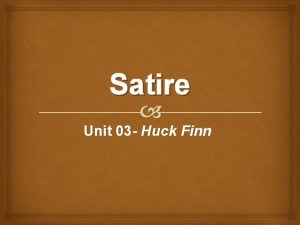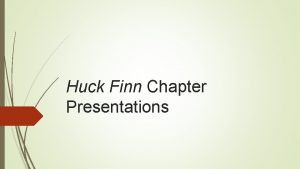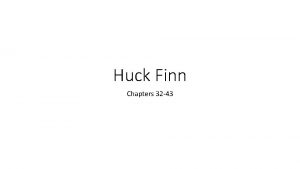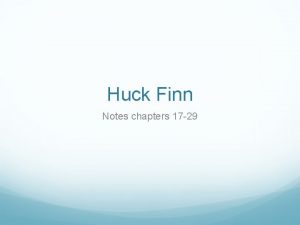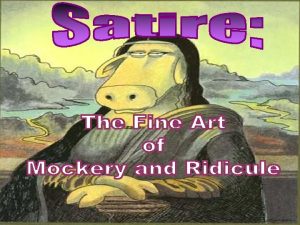Satire in Huck Finn Satire defined Satire is









- Slides: 9

Satire in Huck Finn

Satire defined… • Satire is a literary genre that uses irony, wit, and sometimes sarcasm to expose humanity’s vices or stupidity particularly in the context of contemporary political or social issues. • Satire promotes change or reform through ridicule; its intentions are to improve mankind and human institutions. • Some well-known forms of satire: o SNL o The Daily Show o The Onion

Let’s Review • Define dialect… o A dialect is the form of a language spoken in a particular place by a distinct group of people. Dialects vary in pronunciation, vocabulary, colloquial expressions, and grammatical constructions. Writers use dialect to establish setting, to provide local color, and to develop characters. • Define repetition… o The simple repeating of a word or phrase for the purpose of emphasis.

Sentence Structure • The way sentences are arranged grammatically. Sentence structure can refer to the placement of nouns, verbs, and modifiers, as well as sentence length and complexity.

Hyperbole • Deliberate exaggeration to achieve an effect (also known as overstatement). • Some Examples: o I am so hungry, I could eat a horse. o I have a ton of homework. o He is old as dirt.

Situational Irony • A situation where the outcome is incongruous with what is expected; also, a situation that includes contrasts or contradictions. • Some Examples:

Juxtaposition • Placing two things (or ideas) side by side or close together in order to highlight a contrast. • Some Examples: o “It was the best of times, it was the worst of times, it was the age of wisdom, it was the age of foolishness, it was the epoch of belief, it was the epoch of incredulity, it was the season of Light, it was the season of Darkness, it was the spring of hope, it was the winter of despair, we had everything before us, we had nothing before us, we were all going direct to Heaven, we were all going direct the other way…” (Charles Dickens)

Twain’s targets of satire: • • Manners and Morals Religion Education Being civilized Laws and Government Pride Hypocrisy Racism

Questions to consider what analyzing Twain’s use of satire: • What seems “off” about this passage? • What language techniques and devices are used to create satire? • What might be the target of the satire? • What is the difference between what Huck says (or other character speaking) and what Twain wants the readers to understand?

